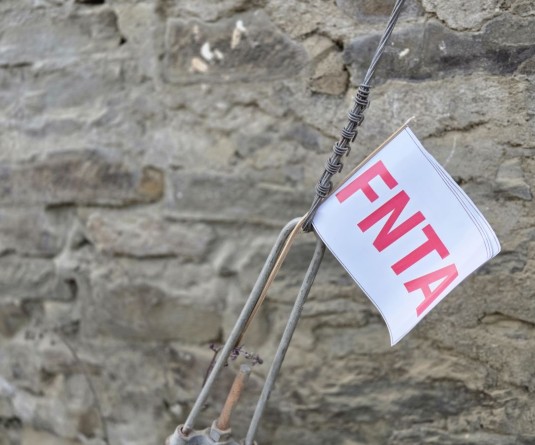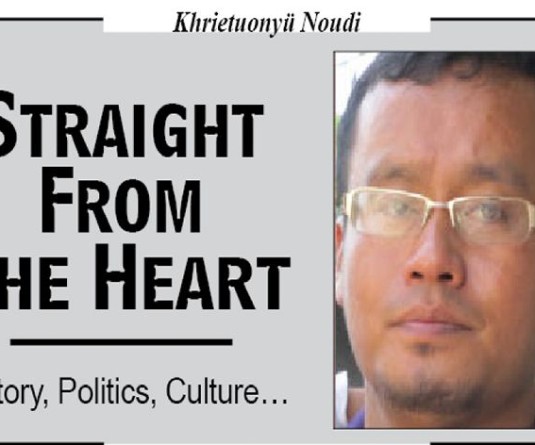
Shanchothung Murry
Wokha
Democracy is claimed to be one of the best strategy against corruption and other evil practices against the will of an individual. Though a widely accepted definition of Democracy is not available, it is often seen as the system of governance that provides for greater participation of the citizens in the processes of the elected government, ensured by constitutional rights and freedoms inclusive of speech and expression with the paramount expression in the form of adult franchise guaranteeing the right to vote.
These declarations extol the virtues of democracy, even if they are defied in actions. Democracy in our state of Nagaland is like the beautiful portrait hanging on the walls of a long corridor of proud history of self-determination and affirmation, but hardly ever notices by people passing by; the allure neglected and lost. Isn’t the spirit of democracy threatened in Nagaland? We need not cite examples of the similar shame elsewhere in the country. Let’s reflect about our own state and challenge the vested interests behind the status-quo and challenge the idea of free, fair and informed election processes followed here.
I do not need to mention my particular local ward, or the assembly constituency; I have witnessed all the possible unfair and corrupt practices of election in the forms of bribery, muscle power, vote-rigging, bogus-voting etc. which is the same across the state. Some of these unfair and evil practices that are hallmark of our democracy challenge various moral, economic and social obligations:
1. The drive to win
Employing money as well as muscle power to win elections at any cost, cuts a deep wound in our democracy. In a state which runs a deficit-budget with a blanket ban on alcohol, lakhs are spent to lure voters with bribes, alcohol and even drugs. The society at large has become slaves to these temporary gains received from the politicians, and ignores the greater malaise that plagues us in the field of public services and infrastructure.
Those who refuse to be bribed, are threatened with life or damage of property until they current their vote to the party. In such circumstances, where is the individual’s right to vote according to their own choice?
The irony and the worst part is the young who are either leading or part of such groups with malicious behaviour are mostly the so called 'educated' , graduates and what not degree holders.
2. Politicians’ return on investments
After the elections are over, the elected representatives are more concerned about recovering the expenses of his election campaign sidelining their promises to work for the welfare and development of the people and the society. The budgetary allocation for various schemes and projects are pocketed by these leaders to recover their investments to win the election. This has resulted into the sorry state-of-affairs of various departments that should have led the way to better Human Development Index in Nagaland. The state budget shows over-expenditure for various projects even though we hardly see tangible evidence with regard to our roads, public hospitals or electricity, among other essential services. Some of the money is perhaps even saved for the next election campaign. While we constantly speak of the corruption of various politicians on social media, seldom do we ask who votes for them and why?
3. Clan and village politics
Another ravishing factor that takes away an individual's Freedom of Choice and Right to Vote. The self-exonerating traditional bodies comprising elders of clan or village at times compel the voter to cast their vote for a particular candidate. An individual's 'spirit of democracy' shall never be overwritten by our chauvinist attitudes. While some may be too timid to decide for themselves, those who wish to make a more informed choice after checking the candidate’s credibility and accountability should not be deterred from exercising their right.
We should be gratified to have a good leader from our village rather than be content with a selfish or corrupt person representing us. We should be able to separate jingoism from our patriotism while electing leaders. It's a collective societal shame when we overlook lack of credibility and weaknesses by using forced means or various ‘ism' to justify our actions.
4. Covetousness
It will never be a hyperbole to say that some few people give huge amount of money to the candidates and later are endowed by the Elected Representatives with counterfeit projects for infrastructure or whatsoever development. On the other hand, during the election campaign some people take money from the candidates with a promise to lure more voters. Not a surprise to see some people with no regular jobs or a legal business establishment living a luxurious life. The result is, the common people suffer under their expensive nose.
Democratic responsibility and Christian principles:
Don't you think Democracy in Nagaland is threatened? And who is responsible? Shall keep on with the Blame Game Policy and never change ourselves for a better, clean and fair election? If we say all politicians are corrupt & selfish, then don't we realize that we're the ones who elected them and that we are equally corrupted? To abrogate all these corrupt practices of elections is indubitable. We're in a situation 'where everybody knew but nobody obeyed', 'everybody said but nobody did’ and 'everybody listens but nobody follows'. Hence, we need a strong hand to cure the malaise of election malpractices which have been affecting our society for yonks. We need to radically transform ourselves first if we want to see a transformed society. A liberal and clean election cannot be built by a few dedicated and intellectual persons or by the elected political leaders. It demands sincere participation of every member of our society – the rich and the poor, the strong and the weak, men and women, literate and illiterate, the rulers and the subjects.
Within the Christian context, leaders and rulers are endowed with divine responsibility. They are the agents to foster progress, justice, equality and peace. When such an agent is driven away by the forces of greed, self-centeredness and shies away from their given responsibility, it is impossible to build clean and progressive society.
There's a great wall of division between politics and the churches in Nagaland. Politics as defined is never intended as a dirty game; it is the people who make it dirty, resulting into an unhealthy nexus between the state and the church. When almost all the bureaucrats and political leaders in Nagaland are Christians, our church members, there needs to be greater assertion of Christian values and principles in public and political life. We need to recognise this fact and work together with all members of civil society organisations and political leaders and parties to bring the desired change in our society.
The church as a believers’ community is called to join hand in liberating people from all kinds of sins, social evils, economic exploitation, political oppression, corruptions and other dehumanizing forces which destroy our society. The church cannot remain silent when election campaign creates platform for violence and claims the lives of people. Does it come into strong activism merely to uphold the ban of alcohol? Why can't the churches also uphold the moral standards as dictated by Christ himself and play a role in getting rid of those looting HIS people?
Therefore, it is every concerned citizen’s duty to root out the corrupt practices of elections. Martin Luther King once said that 'whoever accepts evil without protesting is in reality working with it’. Our society today demands us (believers) to speak out fearlessly against rulers who misuse power. We must break the culture of silence. It will be too costly to leave the problem to the next generation to be resolved. A country cannot be truly democratic until its citizens have the opportunity to choose their representatives through elections that are fair and free. In Romans 13:3-5, Paul expressed his belief in justice of civil society "for rulers hold no terror for those who do right, but for those who do wrong.”





